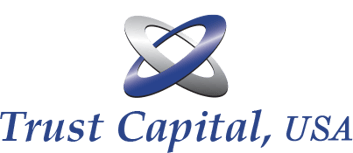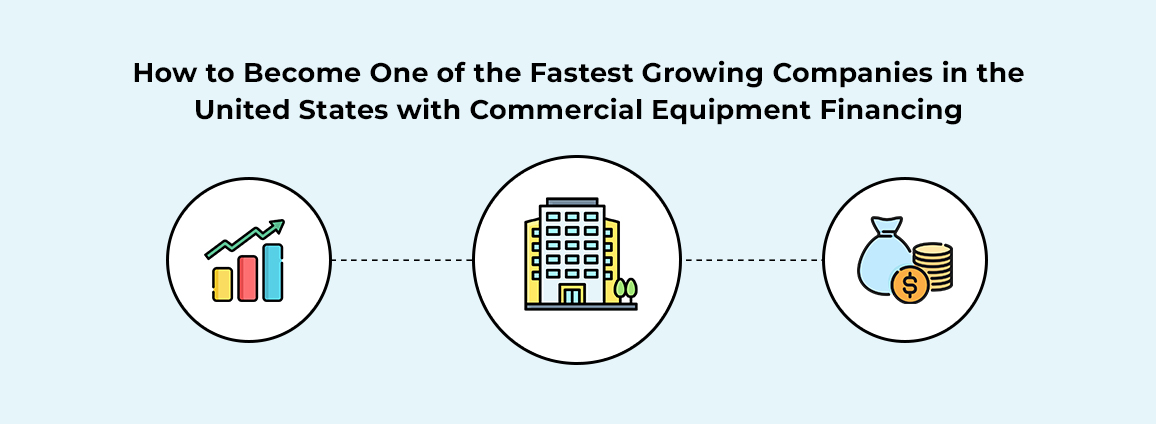Capital expenditures involving machinery, especially in commercial and industrial premises, are vital to maintaining a company's operations and ensuring its growth. Particularly for small businesses, purchasing new equipment with the help of commercial equipment financing has the potential to make your company the fastest-growing one.
Starting a business will have several responsibilities, from financing to turnover. Every phase of your business operations involves appropriate attention. But, financing the startup business is easier. For instance, businesses, especially in industrial operations, require equipment financing to launch their startup business. Equipment financing is the perfect choice for new or existing businesses. Consequently, they come with their own sets of pros and cons, and our post today will review everything related to equipment financing and how it operates.
What is Equipment Financing?
With the help of equipment financing, new equipment can be purchased and put up as collateral for business loans. The equipment that has been purchased can be used to make your business money, and the business loan can be repaid every month at a set interest rate using these earnings.
The equipment's worth is reflected in the loan amount. However, depending on the overall worth of the equipment, interest rates can range from 5% to 30%. Additionally, the approval process for this kind of business loan is rather straightforward, and the loan amount may be made available in as little as two days.
Why opt for Equipment Financing?
Startup businesses and existing enterprises can truly succeed for varied reasons. But, it is extremely important to understand your purpose for acquiring the equipment.
One of the reasons we see all the time is when old equipment has stopped working. Yet another reason to search for equipment financing is to help expand your business operations to increase revenues or improve efficiencies. It is vital to have a specific idea about it before applying so the equipment lenders understand your purpose for taking on a new business loan.
How Does Equipment Financing Work?
The loan amount is applied to purchasing business-related equipment when obtaining equipment financing. There are numerous uses for general corporate financing, and only business-related equipment can be financed with equipment.
The purchased equipment is used as collateral for the loan. One disadvantage of equipment financing is this. The lender makes the equipment purchase price available under predetermined terms and circumstances. These conditions might specify the frequency of payments and the principal, interest, and fixed term length. The lender may seize the equipment if the monthly payment is not made. To recoup losses, they may even sell it.
Tips to become one of the rapidly succeeding companies with commercial equipment financing
- Meet Changing Business Needs
Trends in engineering, production, and technology are always evolving. Companies that use equipment that is five years old or older risk losing their competitive edge.
By investing in new equipment and cutting-edge technologies, businesses can be more adaptable and flexible when business needs change. Additionally, it puts companies in a better position to accommodate clients' and end users' evolving preferences and needs. New equipment helps some small firms expand their customer and market reach and their ability to provide new goods and services. Especially office furniture and IT equipment for your employees.
- Increase Efficiencies and Productivity
Equipment purchases that enable staff to work more quickly and eliminate manual labor and repetitive chores can boost productivity overall. The same holds for any new technology that accomplishes tasks more quickly, safely, and with higher quality while generating less waste, requiring less upkeep, conserving fewer resources, and requiring less human involvement.
It's crucial to remember that such increases in productivity and efficiency, together with the factors that led to them, can also result in considerable cost savings with the help of commercial equipment financing.
- Improve Safety and Security
Even when properly maintained, older equipment might pose safety issues, especially logging equipment. Due to worker's compensation and other charges, an employee who is hurt at work may have to pay out a lot of money.
Safety at work includes more than just workers' physical well-being. Companies may be more vulnerable to theft, damage, security breaches, and cybercrime if their hardware, including computers and servers, is outdated.
It is more likely that new equipment will include more advanced technical security measures and anti-theft features. Depending on the equipment, it might use packaging or special materials to help lower the chance of environmental damage.
- Take Ownership
Some businesses opt to lease new equipment rather than purchase it. One drawback of this choice is that businesses are at the whim of the equipment leasing provider. If the equipment leasing firm does not permit it, they cannot take the equipment over seas.
When a company buys its equipment, it can make changes as needed. The firm is not required to follow the restrictions of a leasing company, and the equipment can be sold if it outlives its usefulness to the company. There are other tax benefits associated with ownership.
- Take Advantage of Tax Incentives
Businesses can deduct the whole cost of qualified hardware and/or software that they bought or financed during the tax year according to Section 179 of the IRS tax code. In other words, you can subtract the entire cost of a piece of qualifying equipment from your gross income if you buy (or lease) it. The U.S. government devised this incentive to entice firms to invest in themselves and purchase equipment.
When your company purchased eligible equipment in the past, it usually depreciated over time and wrote it off gradually. To put it another way, if your business invests $50,000 on a machine, it can deduct $10,000 every year for five years (these numbers are only meant to give you an example).
Most business owners would like to write off the entire equipment purchase price for the year they acquire it, even if it is true that this is preferable to having no write-off.
And that is precisely what Section 179 achieves, enabling your company to deduct the full cost of eligible equipment purchased for the current tax year.
It has significantly changed things for many businesses (and the economy in general.) Instead of waiting, businesses have used Section 179 to get the equipment they need now. For 2023, the maximum amount of the Section 179 deduction has been increased for inflation to $1,160,000 and the phase-out threshold also increased to a maximum of $2,890,000 for all businesses.
- Remain Competitive
Businesses that opt to put off or forgo buying new equipment run the risk of losing clients and business to rivals who do. New industrial equipment can attract customers because of its enhanced speed or a larger variety of capabilities. In contrast, new technology equipment can assuage consumers' concerns about their data security.
It goes beyond only customer opinion or a company's reputation. The lack of new equipment might make it difficult, if not impossible, to take on new work and deliver the new products and services demanded, depending on the industry and type of firm.
- Gain Access to Vendor Support and Warranties
Older equipment is probably no longer covered by any warranty or support assurance. Once a piece of equipment reaches this point, firms risk costly downtime or total outage caused by outdated parts. Normally, warranties, parts replacements, and vendor support come with new equipment. Help is available via phone call, email, or online chat whenever a query or issue arises.
- Weigh the Pros and Cons
New equipment purchases represent a significant financial commitment for companies of all sizes. Particularly small businesses could find it to be unstable. Before making any acquisitions, businesses should weigh their options after assessing their needs and resources.
Leasing new equipment may be the best choice for some organizations, while others may be able to put off choices regarding their equipment for a long time. Others might find that adjusting the equipment that has already been installed is adequate. Some people could decide to buy second-hand equipment.
Final thoughts on How to Become One of the Fastest Growing Companies in the United States with Commercial Equipment Financing
For those firms that decide that purchasing new equipment with the help of commercial equipment financing is the best course of action, there are still a lot of decisions to be made. The equipment's capabilities, longevity, warranties, maintenance requirements, and other factors must also be considered.
The issue of how to pay for the equipment is another. A committed equipment financing specialist at Trust Capital who is well-versed in your sector can present a variety of financial options and assist you in choosing the best tool for your unique requirements.


 (866) 458-4777
(866) 458-4777

 Paul Kendall
Paul Kendall





